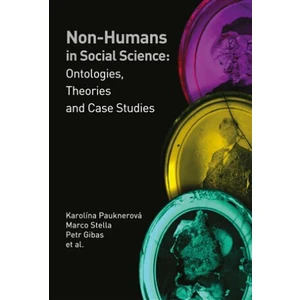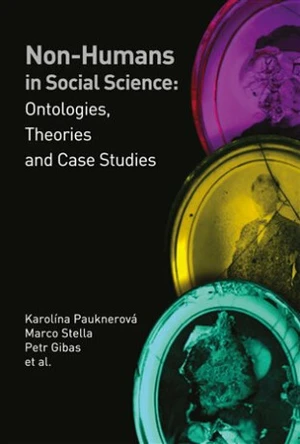The book explores the issue of non-humans and their role and position within contemporary social sciences. Inspired by current trends of bridging the dichotomy of nature and culture, the authors use the „non-human“ as a prism that offers a different perspective of the world, society, culture and last but not least, deing(s). To start paying attention to non-humans has the potential to hybridize social sciences and in turn enrich them as well as to offer social scientists novel perspectives and tools to approach social phenomena. Such an attitude might in turn lead to a rassessment of understanding of the relationship between the world and being, and of the categories of being and subject, hence the potential of non-humans to stimulate an ontological shift within social sciences. The view o
f the „human“ and „non-human“ as oppositional categories is a remnant of essentially modernist thinking. This book represents a response in terms of an attempt to think about humans and non-humans autside of the binary division. The authors thus want to contribute to the hybridization of social sciences and throughout the book they deal with ontological, epistemological and thematical shifts stemming from the hybridization. If the non-humans does not exist as a negation, the boundary between the two becomes unclear and overlapping. It is with this hybridization, the blurring of the boundaries, that we are able to come closer to those who inhabit the world? Non-humans and humans alike.
více
Nejlevnější produkt
11,71 € | knihy.abz.cz | In stock
Máte ve vašem obchodě lepší produkt?
Nejlevnější produkt
11,71 € | knihy.abz.cz | In stock
Máte ve vašem obchodě lepší produkt?
K dispozici v
Co říkají obchody
knihy.abz.cz
Kniha: Non-humans in Social Science II -- Ontologies, Theories and Case Studies; Autor: Pauknerová Karolína, Stella Marco, Gibas Petr, kol.; Příspěvky nahlížejí na roli a místo mimo-lidské sféry v současných sociálních vědách. ...
Knihy Dobrovsky
The book explores the issue of non-humans and their role and position within contemporary social sciences. Inspired by current trends of bridging the dichotomy of nature and culture, the authors use the "non-human" as a prism that offers a different perspective of the world, society, culture and last but not least, deing(s). To start paying attention to non-humans has the potential to hybridize social sciences and in turn enrich them as well as to offer social scientists novel perspectives and tools to approach social phenomena. Such an attitude might in turn lead to a rassessment of understanding of the relationship between the world and being, and of the categories of being and subject, hence the potential of non-humans to stimulate an ontological shift within social sciences. The view of the "human" and "non-human" as oppositional categories is a remnant of essentially modernist thinking. This book represents a response in terms of an attempt to think about humans and non-humans autside of the binary division. The authors thus want to contribute to the hybridization of social sciences and throughout the book they deal with ontological, epistemological and thematical shifts stemming from the hybridization. If the non-humans does not exist as a negation, the boundary between the two becomes unclear and overlapping. It is with this hybridization, the blurring of the boundaries, that we are able to come closer to those who inhabit the world? Non-humans and humans alike.


